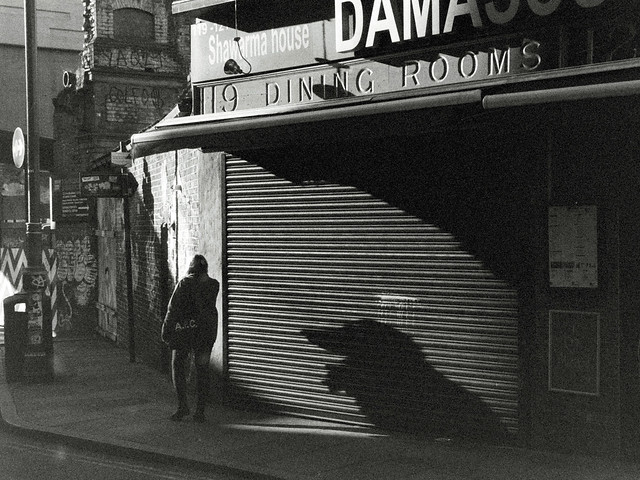More Britons believe sex workers should not be punished for operating out of brothels or on the street than those who think they should, an opinion poll commissioned by RightsInfo has found.
Forty-nine percent of British people surveyed are in favour of decriminalising brothel-keeping, an offence punishable by up to seven years in prison.
Meanwhile, 44 percent of people surveyed feel that sex workers should not face prosecution for street solicitation – in other words, offering their services in public – for which they can currently be fined up to £500 for a first-time offence.
Less than a quarter of those surveyed are against relaxing police enforcement on brothels (22 percent), while 27 percent are opposed to ending penalties for street solicitation.
The results of the poll, conducted by market research agency Survation, are based on views of more than 2,000 people in what is the first major test of public opinion on sex work decriminalisation in four years.
It is technically legal to sell sex in Britain but several practical aspects of the trade are outlawed – such as street solicitation and working in a brothel.
Around a fifth of people polled (21 percent) neither oppose nor support decriminalisation of either activity.
‘Politicians Need To Catch Up With The Public’
The poll results come amid renewed debate on sex work law reform among MPs, unions, activists, as well as human rights and anti-trafficking groups.
People are horrified that sex workers suffer so much violence and understand that the prostitution laws, which force women to work in isolation, increase the danger of attack.
– Niki Adams, English Collective of Prostitutes
Tory MP Fiona Bruce, chair of the Conservative Party Human Rights Commission, last month announced her intention to table a bill to reform the UK’s “complex, confusing and inconsistently applied” laws on sex work.
Activist group the English Collective of Prostitutes has long campaigned for decriminalisation, arguing that brothel-keeping laws undermine sex worker safety by forcing them to work alone or face possible arrest and prosecution.
“This poll confirms our experience that the public supports decriminalisation,” said the group’s Niki Adams.
“People are horrified that sex workers suffer so much violence and understand that the prostitution laws, which force women to work in isolation, increase the danger of attack.
“Politicians need to catch up with the public and decriminalise sex work as well as overturning the government’s savage austerity cuts, which have left many women and single mothers in particular, with few other options to survive.”
Brothel keeping laws are preventing sex workers from working together for safety …
– Dr Rosie Campbell OBE, York University
Dr Rosie Campbell OBE, a researcher at York University and co-chair of the Sex Work Research Hub, told RightsInfo how the existing laws can make sex workers less safe.
“Brothel keeping laws are preventing sex workers from working together for safety,” she said. “When they take the risk and do so they will be anxious to call the police if any crimes are committed against them which, again, undermines safety.”
She added: “Use of soliciting legislation is criminalising vulnerable women, creating an adversarial relationship between street sex workers and the police. This contributes to the under-reporting of a wide range of crimes committed against street sex workers, with perpetrators continuing to pose a threat to sex workers and other community members.”
Professor Teela Sanders, criminology expert at the University of Leicester who is also among the hub’s chairwomen, added that UK law is “out of step with public opinion” and does not reflect “more liberal attitudes” towards sexuality seen in societal surveys.
“The British public do not support a punitive approach to sex work but are open to decriminalisation,” she said. “This result continues to suggest that if politicians were brave enough to think about the impracticalities of the current laws and how damaging they are, then there would not be a backlash.”
A 2015 poll conducted by YouGov asked the public whether it would support or oppose the “full decriminalisation” of prostitution, provided it was consensual, with 54 percent answering in favour and 21 percent opposed.
A dip in support for decriminalisation seen in this year’s Survation poll can partly be attributed to the fact that respondents were able to opt for a neutral option of “neither supporting nor opposing” decriminalisation, where they could not previously.
The latest poll is also the first to gauge the public’s attitudes towards brothels separately from street prostitution, revealing greater public acceptance of the former.
There have been 186 prosecutions and 174 convictions for brothel-keeping offences since 2015, according to Home Office figures. Fifty-four percent of prosecutions were against women defendants. There were also 915 prosecutions and 814 convictions for street solicitation-related offences over the same time period.
A study published this month by sex worker safety scheme Ugly Mugs revealed that in Ireland the vast majority of those convicted of brothel keeping are migrant women.
Should Sex Workers’ Clients Face Criminal Punishment?

Image credit: Pexels / Pixabay.
The latest poll stops short of gauging the public’s opinion on the thorny debate of whether sex workers’ clients should face criminal punishment.
However a 2014 poll conducted by market research firm Growth for Knowledge, commissioned by the Campaign for Radical Sociology, found that 51percent of Britons were also opposed to criminalising sex workers’ clients.
In 2015, Northern Ireland reformed its laws to decriminalise those who sell sex while cracking down on those buying it – an approach which has been dubbed “the Nordic Model” after it was pioneered in Sweden two decades ago. This model is also endorsed by Fiona Bruce and the Tory human rights commission in its latest report.
But organisations including Amnesty International, the World Health Organisation, UNAIDS and the Royal College of Nursing all advocate instead for the government to fully decriminalise sex work, including those paying for it. It is argued that penalising those buying sex means sex workers must still carry out their business in secret, making them more vulnerable to attack.
Since the Nordic Model was introduced in Ireland in 2017, reports of violent attacks on sex workers have increased by almost 50 percent, according to charity Ugly Mugs. There were around 900 in the year preceding the change and more than 1,400 reports the year after.
Earlier this month RightsInfo released an animation exploring sex workers’ working conditions in partnership with the English Collective of Prostitutes. Source: RightsInfo.
In 2016, the Home Affairs Select Committee recommended that the government fully decriminalise sex workers as the best means of ensuring their safety. However, the Home Office responded by arguing that there is not enough evidence to warrant a change in legislation.
Responding to our poll, a Home Office spokeswoman said that it has no plans to change the law around prostitution and is committed to tackling the harm and exploitation associated with sex work.
“That is why we commissioned research into the scale and nature of prostitution in England and Wales,” she said. “We have some of the most stringent human trafficking and modern slavery laws in the world and are providing £100m in funding to tackle all forms of violence against women and girls.”
Want to learn more on this topic?
- View an animation about sex workers’ working conditions.
- Read an interview with a sex worker on her reasons for working in the sex trade.
- Take a look at academics’ views on decriminalising sex work.









